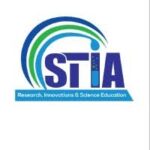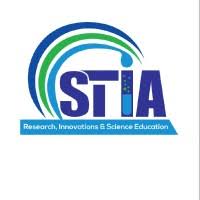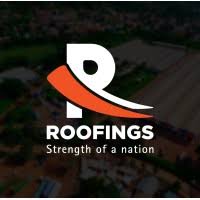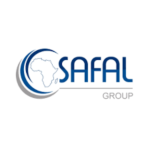
Who We Are
Science Teaching and Innovations Africa (STIA) (formerly known as Science Teachers’ Initiative STI) is a Ugandan locally registered non-profit non-governmental organization made up of experienced science teachers and innovators. The organization invests in improving the quality of education and stimulating critical thinking and innovation among young people in Africa.
Our Vision Statement: A vibrant community of empowered science educators and young scientists driving
African socioeconomic development through innovative homegrown solutions.
Our Mission is to optimize science education experiences and outcomes as fundamental catalysts for the accelerated socioeconomic development of Africa.
STIA legally authorized River flow International (RIFI) to sponsor its activities and to transact on behalf of STIA, on which powers of attorney was issued. All instructional materials and publications of Science Teaching and Innovations Africa are copy righted as per the laws of Uganda.
Job Summary:
The Monitoring, Evaluation, and Learning (MEAL) Officer will be responsible for implementing and overseeing systems that track, assess, and enhance the impact and effectiveness of programs and projects within River Flow International-Science Teaching and Innovations Africa. The MEAL Officer plays a crucial role in ensuring that the RIFI-STIA achieves its goals by continuously learning from its activities, adapting strategies based on evidence, and improving overall performance.
The Monitoring, Evaluation, and Learning (MEAL) Officer is responsible for developing, implementing, and managing robust monitoring, evaluation, and learning frameworks to track the progress and impact of RIFI-STIA programs. By systematically collecting and analysing data, the MEAL Officer provides critical insights to inform decision-making, improve program effectiveness, and enhance organizational learning.
The ultimate goal is to ensure that the RIFI-STIA’s initiatives are well-aligned with its mission, deliver measurable results, and contribute to positive and sustainable outcomes.
Key Duties and Responsibilities:
Designing Robust Organizational Learning Systems:
- Spearheaded the development of comprehensive procedures, processes, and systems aimed at fostering a culture of continuous learning and knowledge sharing throughout the organisation
- Leverage insights derived from program results, approaches, partner feedback, and lessons learned to contribute meaningfully to the broader field and influence the design of future programs.
Elevating Monitoring, Evaluation, and Learning Practices:
- Implement strategies to enhance monitoring, evaluation, feedback, and learning practices across the organization.
- Conduct training sessions, workshops, webinars, and other capacity-building initiatives to empower teams with the necessary skills and knowledge to engage in effective monitoring and evaluation activities.
Building Data Infrastructure for Strategic Decision-Making:
- Establish and maintain a robust data infrastructure to facilitate ongoing monitoring, evaluation, feedback, and learning initiatives.
- Utilise data-driven insights to inform strategic decision-making and enhance the overall implementation of programs.
Implementing a Comprehensive Monitoring and Evaluation Framework:
- Develop, implement, and refine a monitoring, evaluation, and feedback framework to systematically aggregate and communicate program results.
- Collaborate closely with program officers, program managers, and directors to analyse and synthesise impactful practices and innovative ideas derived from grassroots partners’ work.
Strategic Alignment in Funding Proposals:
- Collaborate on relevant sections of funding proposals, ensuring alignment between partner capabilities and project requirements.
- Articulate outputs, outcomes, and impact to present a compelling case for donor support.
Guiding and Informing Evaluation Initiatives:
• Play a key role in guiding periodic reviews and evaluations of specific grant-making initiatives.
Continuous Improvement and Learning:
- Stay abreast of developments in the field of evaluation and organizational learning.
- Proactively identify and incorporate best practices and innovative strategies to ensure that RIFI-STIA remains at the forefront of effective evaluation and learning methodologies.
Qualifications, Skills and Experience
- The candidate should possess a bachelor’s degree in a relevant field such as monitoring and evaluation, education, statistics, social sciences, international development, or a related discipline.
Postgraduate qualification in Monitoring and Evaluation is a Must. - Five years of experience in monitoring and evaluation roles, preferably in the context of Education or Research and Innovations programs.
- Experience managing M&E activities for Education-related projects.
- Proven experience in designing and implementing monitoring and evaluation frameworks
- Proficient in quantitative and qualitative data analysis using tools such as Excel, SPSS, or others
- Ability to interpret and present data in a clear and meaningful way.
- Familiarity with various monitoring and evaluation tools and methodologies. Experience in designing and implementing MEAL frameworks
- Strong analytical skills to interpret data, identify trends, and draw meaningful conclusions. Ability to think critically and solve problems.
- Ability to adapt to changing circumstances and evolving project requirements. Flexibility to navigate diverse contexts and challenges.
- Meticulous attention to detail to ensure data accuracy and reliability. Thoroughness in designing and implementing MEAL frameworks.
Working Conditions:
- The role may require frequent travels to rural project sites using public transport means,
- Ability to work under pressure and meet tight deadlines.
Submit your cover letter, cv & copies of academic credentials as one pdf file by 11:59pm, 18th July 2024 to









